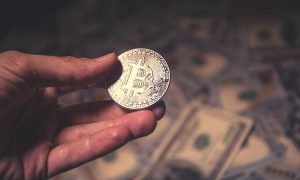South Korean Court Says, What’s the Catch?

[ad_1]

The Seoul High Court Civil Division has reportedly ruled that Bitcoin should not be treated as money.
As such, the primary cryptocurrency is not subject to the local lending business legislation, and interest rate rules “don’t apply” to it.
Limitation is Impossible
According to recent coverage, South Korea’s magistrates came up with their decision after being involved in a case between two firms whose names were undisclosed due to legal reasons.
The first entity, referred to as Company A, inked a deal with the second (Company B) in October 2020 to lend 30 BTC for three months. The latter agreed to pay the former 1.5 BTC for the first two months and 0.75 BTC for the last month as an interest rate.
However, Company B failed to comply with the terms, and Company A extended the rental period until April 2021, changing the interest condition to receiving 0.246 BTC per month (equivalent to 10% per annum).
Despite the extension of the contract, the debtor could not honor the agreement again, resulting in a lawsuit filed by the borrower. Company B said in court that “Company A violated the Interest Limitation Act and the Loan Business Act” by changing the rates.
The court, though, did not accept those arguments, stating that “the object of this contract is virtual assets, not money, so the interest restriction law and the loan business law do not apply.”
The officials went further, maintaining that cryptocurrencies like bitcoin are not money and should not be subject to domestic lending business rules. In other words, it is impossible to limit the interest rate when lending BTC (according to existing South Korean law).
Could Bitcoin Classify as Money?
While South Korea does not view the leading digital asset as money, one could argue that it could partially fit into that category. Economists say that money has three functions: a unit of account, a medium of exchange, and a store of value.
Unit of account is used in finance to measure the value of a particular good, service, or property, allowing people to evaluate products and compare them based on a specific currency, such as the American dollar, the Euro, or others.
Bitcoin’s price and the scope of the global cryptocurrency market are sized in fiat currencies, most typically in USD, meaning BTC does not serve this function yet. Although, it’s worth noting that in El Salvador, Bitcoin is accepted as a legal tender, meaning it could theoretically serve as a unit of account locally.
However, the asset’s adoption has surged rapidly over the years, with many well-known companies accepting payments in BTC. Examples are Microsoft, PayPal, AMC Theaters, Shopify, Ralph Lauren, Philipp Plein, Burger King, Subway, Starbucks, and many more.
At one point, even the EV giant Tesla embraced BTC as a settlement method. In addition, countries like El Salvador and The Central African Republic have declared Bitcoin legal tender inside their borders.
That said, it seems like the asset could pass the second requirement (medium of exchange).
The third function – a store of value – represents an asset’s ability to maintain its valuation and purchasing power over the years. Crypto critics have claimed that BTC should be excluded from that section due to its infamous volatility while suggesting that gold and other precious metals are among the few with such capabilities.
Binance Free $100 (Exclusive): Use this link to register and receive $100 free and 10% off fees on Binance Futures first month (terms).
PrimeXBT Special Offer: Use this link to register & enter CRYPTOPOTATO50 code to receive up to $7,000 on your deposits.
[ad_2]
Source link









